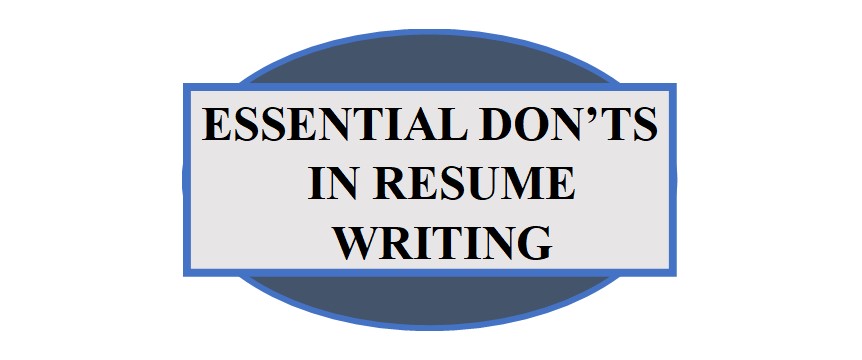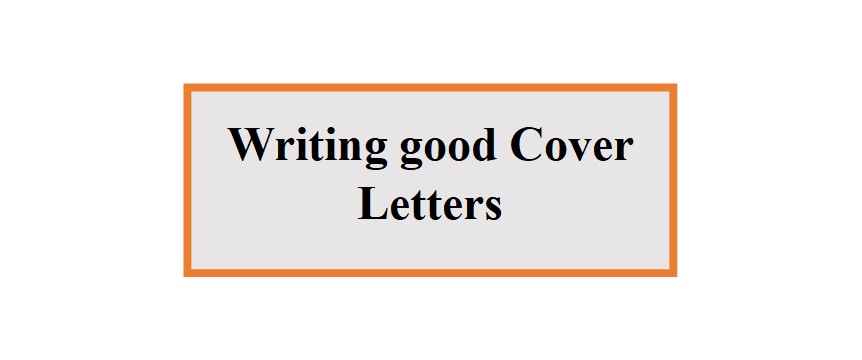It is very good to know the essential don’ts in resume writing to craft a good one. The resume is a very important document used during job application. In my article, crafting the perfect resume, I discussed what to include in your resume. Therefore, this article will discuss what to avoid when writing a good resume.
Essential don’ts in resume writing
To make your resume stand out and easily noticeably by employers, always avoid what will discussed below.
1. Generic resume templates
Avoid generic templates since they make your resume look similar to others. Use a professionally well-customized template, well formatted and organized to reflect your unique skills and capabilities. This will make your resume stand out. In addition, don’t use a single resume template for all jobs you are applying for. Use a resume template which reflects your industry and nature of the job you are applying for.
2. Irrelevant information
In addition to using generic templates, the second most common mistake a lot of job seekers make when writing their resume is adding irrelevant information. This makes your resume long, and boring to read and also makes you forget to add important information. Only write important accomplishments, skills, and work experiences that showcase your ability to do the job you are applying for. Don’t include skills which doesn’t contribute to the job. Example if you are applying for a sales manger job, don’t include how you functioned as a warehouse manager in your job. In this instance, include how you increased company sales target, increase prospective clients and increase company profits.
3. Errors
Avoid errors at all costs when writing your resume. Errors can be in many forms, grammatical errors, formatting inconsistencies, spelling mistakes, etc. Errors reveal how careless you are and how you don’t pay attention to details. Making avoidable errors in your resume also shows how lazy you are and doesn’t send a good impression to employers. Due to this, always proofread your resume to make sure there are no errors before submitting. In addition, let people with experience read your resume draft before sending them. Such people have experience and insights to improve your resume. They can easily correct certain errors which you cannot easily identified.
4. Personal details
The resume is a professional document and must be treated as such. Details such as your age, marital status, religion, etc. must not be included in your resume unless they are required. Including such details may introduce room for bias or discrimination. Also, in certain companies your application can be rejected when you include irrelevant personal information, hence take note of that.
5. Excessive Jargons and acronyms
In the job application process, it is likely that your application materials including resume will be read by people from various backgrounds. Due to this avoid using too much excessive jargons and acronym. While it is acceptable to use industry-specific terms and acronyms, it is advisable to use clear and concise language. This will make your resume readable and understandable to a wider audience from various fields. If you must use jargon and acronyms, explain them also in simple layman’s terms.
6. Falsifying information
Many job seekers include false information to make them appear as strong candidates when writing their resumes. Certain companies dig dip about your resume before interview. They can acquire information from your previous employee and can verify certain false information you have provided. Also, some jobs require certain levels of credibility and trustworthiness, especially when managing company’s finances are required. After digging into your resume, your employer can notice and disqualify you. Whereas in some cases, the false information may be noticed after you are employed. Whichever way, including false information, will damage your reputation and credibility which can affect your future job applications and employment.
7. Unprofessional Emails
The resume is a professional document and must be treated as such. Avoid using fancy and unprofessional emails. Using such emails tells the hiring manager you are not serious and takes things for granted. It is advisable to use an email with you full name. Examples of a fancy emails which should be avoided are rabbitman@gmail.com, donpersie@gmail.com. Use an email which looks professional, it must include your name, example, philip.kumi@gmail.com or philipkumi25@gmail.com. If you don’t have a professional email, create one.
8. Unmodified file name
The last and the most important thing to keep in mind is how you save your resume file. Avoid fancy and unprofessional names. It is important to save the file name as you full name and position you are applying. An example of good file name is Philip Kumi Resume_Sales Manager. In the eaxmple above, the candidate’s name is Philip Kumi, the file is a resume and he is applying for the position of a sales manager. This name will make your document easily identifiable when the hiring team filters all the documents they have.
Conclusion
This article has discussed relevant things that must be avoided in writing a good resume. These include errors, falsifying information, using unprofessional emails, using excessive jargon and acronyms, etc. Apply them in your resume writing to make you stand out during your job application.





